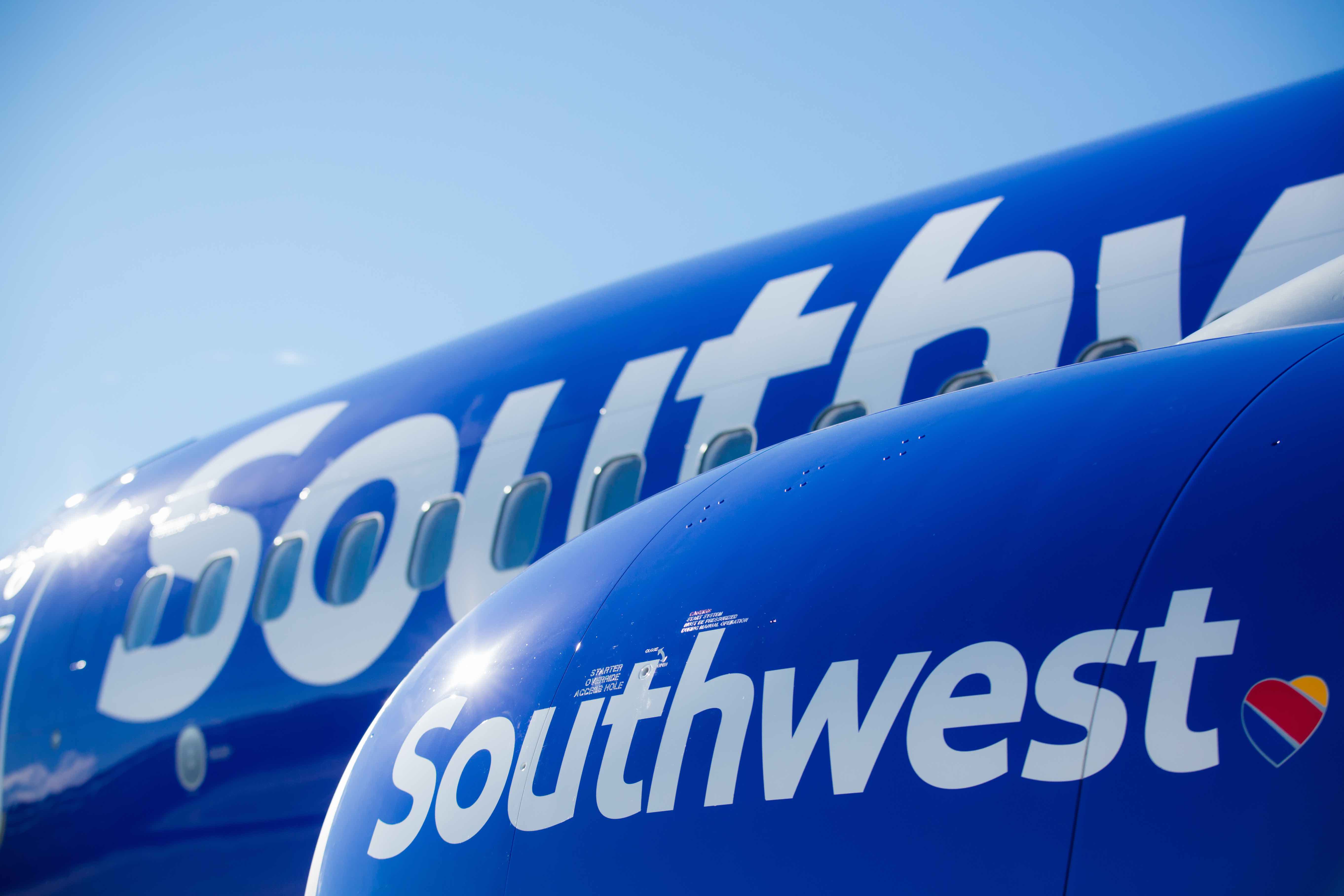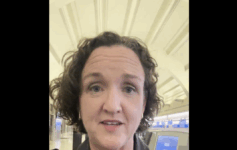Southwest Airlines CEO, Gary Kelly, discussed on the company’s earnings call that they still haven’t accepted government funds, is this an advantage or disadvantage?
If you are considering booking travel or signing up for a new credit card please click here. Both support LiveAndLetsFly.com.
If you haven’t followed us on Facebook or Instagram, add us today.
Southwest Has Lots of Financial Liquidity
Southwest Airlines held its Q2 2020 Earnings call this week and made some interesting announcements. One of note is that as they add back flights to markets over time, they may not come back to the same levels with the same routes, though it seems all carriers are making similar decisions with their fleet.
An analyst for JP Morgan gave some interesting insight into the airline business with his question for Gary Kelly, who in turn enlightened investors into how much liquidity the carrier has:
Jamie Baker — J.P. Morgan — Analyst
“Good afternoon everybody. First question, probably for Gary. So American believes that its intellectual property and its website are worth about half as much as their loyalty program which is a source of liquidity that at least we had not been contemplating. Why wouldn’t your IP co similarly represent several billion dollars of potential liquidity?”
Gary Kelly — Chairman of the Board and Chief Executive Officer
“I suppose it is. I think again we’re able to do senior unsecured, where we don’t have to pledge anything and other than our good looks and our credit. So we — I’m happy that those things are potentially available to us, but I don’t think we need them. We’ve got $15.5 billion in liquidity.
That needs to be more than enough to see us through. And we’ve got a pristine balance sheet, still low overall interest carrying. So that’s all good, but we don’t need it.”
The team stated that Southwest had filed the documents for the loan but had until September 30th to accept it or pass and based on Kelly’s comments, it seems the airline will pass if they are able.
Myles Walton — UBS — Analyst
“Thanks. Good afternoon. Maybe just a clarification first and then another question. On the clarification side, with the [CARES] loan, is this a situation where the treasury is allowing you to finalize the loan if you wanted to and then defer the draw so you don’t have to issue warrants?”
Tammy Romo — Executive Vice President and Chief Financial Officer
“We are in discussions with the treasury now. We have signed the term sheet, as you all know, but we’re really still in discussions to finalize that. It may be that we have to take a small percentage of the loan on September 30, but we’re just — we’re — it’s just a little too early to say for sure because we haven’t finalized that yet with treasury.”
Gary Kelly — Chairman of the Board and Chief Executive Officer
“But we’re not obligated [to].”
Tammy Romo — Executive Vice President and Chief Financial Officer
“We’re not obligated. We have [until] September 30. There may be some small draw required on September 30, but we would have until later, close to the end of March, to draw down on that. So still working through all that.
And we should obviously have that process worked through in the coming weeks.”
Gary Kelly — Chairman of the Board and Chief Executive Officer
“But again, our intent right now is to take 0 and not have the any government loan, just to be clear.”
Tammy Romo — Executive Vice President and Chief Financial Officer
“That’s right. That’s right.”
Gary Kelly — Chairman of the Board and Chief Executive Officer
“And so until September 30, that is our option.”
To review, Southwest has $15 bn in liquidity before they account for some intangibles that other airlines like American have found ways to quantify and perhaps finance. The carrier is hoping to take no government cash from the CARES act, PPP and airline bailout funding but may have to take some form of it between September and March regardless.

Advantages of Rejecting Government Cash
Rejecting COVID-19 based funding has a number of advantages. The first is freedom. Southwest would maintain the freedom to make changes as they see fit. While Southwest indicated that most if not all of its employees that accepted a generous buyout would voluntarily leave before September 30th, as it sits now, the carrier is free to act with impunity toward its business and employees. That seems more dire than it’s intended to be. However, if the carrier finds that the challenges exceed its ability to navigate with the current employee set, Southwest would have the ability to move without CARES Act/PPP restrictions.
As Mr. Kelly stated, the balance sheet is “pristine.” Adding long term debt can change advantages to disadvantages. Taking money from the government now will certainly add to long term obligations and could affect the carrier in the future or preclude it from taking more money when the carrier really needs it.
Third, it plays well to both consumers and investors. Southwest was so strong that even when a global pandemic decimated air travel globally, the airline didn’t have to take any money from the government because they were good stewards and good managers all along. Consumers will also appreciate that even though money was offered, the airline didn’t take it because they didn’t need it, a rare strength among businesses today.

Disadvantages of Rejecting Airline Bailout Funds
Government financing is cheap and in the case of the PPP loan, as long as 75% of it goes to pay employees, it becomes a grant. Separate bailout money may have different restrictions, but even in the event that the money was handed out with EIDL rules, the repayment term would be 30 years at 3.75% with the first payment not due until 12 months after accepting it. It’s likely the bailout money has even better terms and that’s hard to find.
If all the other carriers accept bailout money, especially PPP money as a grant, every one of them has a massive advantage over Southwest. That advantage may have strings but will help fuel the carriers ahead of where they should be. Accepting the money keeps the playing field closer to even.
Stockholder’s will also ask “why wouldn’t you take free/cheap money?” Not only to fuel growth but to help through hard times. Employees will likely feel the same way.
Conclusion
Southwest has apparently managed its business exceedingly well. Despite the 737-MAX debacle and a global pandemic they still don’t need government handouts or loans to survive and, in fact, thrive. That said, management should consider accepting government money as it benefits the carrier in the near and long term. It’s responsible to stockholders and employees. If there were a penalty for taking the money (at these interest rates and strings, there really isn’t) then maybe management’s position makes more sense, but the taxpayer won’t likely materially benefit (as the government fires up another $1 trillion stimulus package) from Southwest rejecting the taxpayer’s generous offer.
What do you think? Should Southwest accept government funding or reject it? Is it more responsible to decline the money from the taxpayers or to ensure the future of your employees?




“Government financing is cheap and in the case of the PPP loan, as long as 75% of it goes to pay employees, it becomes a grant. Separate bailout money may have different restrictions, but even in the event that the money was handed out with EIDL rules, the repayment term would be 30 years at 3.75% with the first payment not due until 12 months after accepting it. It’s likely the bailout money has even better terms and that’s hard to find.”
I’m not sure how PPP rules are applicable (except for the 10 airlines that double dipped and in addition to CARES Act payroll support took PPP loans). EIDL interest rates also aren’t relevant here. American, for instance, will pay about 75 basis points more if memory serves – still a good deal compared to senior unsecured debt they recently closed at 11.75%!
@Gary – I was just providing examples of how cheap the money is (EIDL being the most expensive option is still incredibly inexpensive financing given the repayment terms and rate as you know.) All better options than the financing they secured as you pointed out.
Parker (American CEO) should be half as good of a CEO as Mr Kelly! It has been many times in the past how does Parker keep his job?
Check my next post out this morning. I am changing my mind on Parker.
Walla Kyle stop writing about airlines and focus on the more important stuff in life such as staying home during the COVID-19 crisis. You need to walla pray five times a day or Allah is going to throw you in the hellfire. Be a god-fearing man and stop encouraging people to fly. Flying is too risky Walla. You need to listen to me.